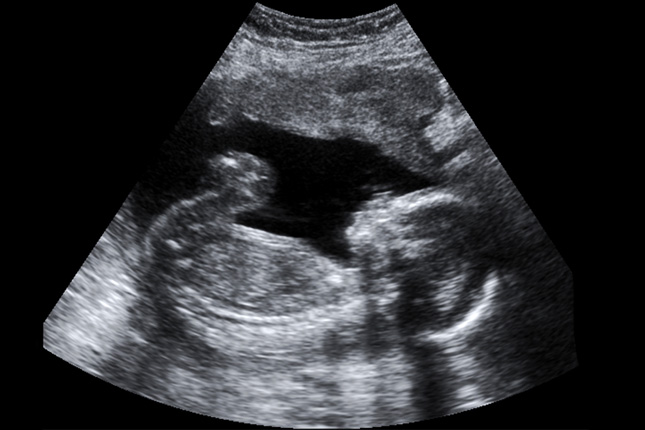Twin Talks
Twin Birthday Parties on a Budget
[00:00:00]
Please be advised, this transcription was performed from a company independent of New Mommy Media, LLC. As such, translation was required which may alter the accuracy of the transcription.
[Theme Music]
DR BROOKE FRIEDMAN: A woman goes through her first pregnancy check-up and is told “Congratulations! You’re having twins!” And weeks later at her next check-up, she’s told “We only see one heartbeat”. This scenario is more common than most people think. I’m Doctor Brooke Friedman, a reproductive endocrinologist and infertility specialist at Reproductive Partners. I’m here to shed some light on what is known as the Vanishing Twin Syndrome. This is Twin Talks.
[Theme Music/Intro]
CHRISTINE STEWART-FITZGERALD: Welcome to Twin talks, broadcasting from the birth education centre of San Diego. Twin Talks is your weekly online on the go support group for expecting and new parents of twins. I’m your host Christine Stewart-Fitzgerald. Now have you heard about the Twin Talks club?
Our members get bonus content after each new show, plus special giveaways and discounts. Subscribe to our monthly Twin Talks newsletter and learn about the latest episodes available. Another way for you to stay connected is by downloading our free Twin Talks app it’s available in the Android and iTunes marketplace.
Before we get started, let’s introduce our panellist in the room. And I’ll introduce myself first, I’m the mom to ID girls who are just five, they turned five years old last week. And I also have a singleton who is going to be two. It just seems like all of our birthdays just happen at the same time. And so we’re definitely were girl. We’re girl family.
SUNNY GAULT: Lots of estrogens
CHRISTINE STEWART-FITZGERALD: Yes
SUNNY GAULT: We’re split in my house. So, I’m Sunny and I am the owner of New Mommy Media which produces Twin Talks, the parent savers, the boob group and the preggie pals. And we have four children, my husband and I. My oldest kids are boys. I have a four year old, a two year old, it’s pretty bad when you say your oldest is four. And then I have identical twin girls, Ainsley and Addison who are ten months old.
SHELLY STEELY: I’m Shelly; I’m the producer here at Twin Talks. I have identical twin boys who just turned two in July. And then I have a singleton girl who is three weeks old. So, we got a three under three situations here. I wanted to let you guys know we have a virtual panellist program. So for those of you who can’t get out of your house and into the studio, you can follow us on Facebook or on Twitter. And you can also use the #twintalksvp to stay a part of our conversation.
SUNNY GAULT: And we want to thank Shelly, this is actually Shelly’s last episode with us at least for the time being, we open the door for her to comeback whenever she wants. But as you can imagine with a new born little girl and her twins at home, things are a little crazy. And she needs to be home and be with her family. We’re sad but we hope she’ll come back at some point so, Shelly we just want to thank you for your time
SHELLY STEELY: Thank you. I’m sure I’ll be in here. I’ll drag her along
SUNNY GAULT: We’d love to have you back. But we appreciate it
CHRISTINE STEWART-FITZGERALD: Thanks Shelly
[Theme Music]
SHELLY STEELY: So before we start today’s show, we’re going to talk about a different medical phenomenon. So, instead of vanishing twin, we have an incident where a woman ended up with kind of an extra one. So, a woman in England considered a true medical miracle, she gave birth to triplets from two separate wombs.
So it’s a rare condition that only affects one in a million women. As you can imagine, she was concerned that she would never have children. And in fact kind of the opposite happens. She ended up pregnant in one uterus with a singleton and then the other one with identical twin. It was a high risk pregnancy. She had the triplets early in low birth weight but luckily they seemed to all be healthy and doing well she says
CHRISTINE STEWART-FITZGERALD: That’s just amazing. I mean, well, having triplets is just, you know, a big deal. But then having them, you know, different
SUNNY GAULT: Two wombs. That’s crazy. And seriously
CHRISTINE STEWART-FITZGERALD: We have our expert in here and I have to ask our expert, Doctor Friedman, I mean, now what are the chances of women having two wombs?
DR BROOKE FRIEDMAN: It’s incre--, it’s rare, it’s rare but we definitely see it. So it’s what’s called a uterine didelphys. Which basically there two separate uterine horns. And women actually can conceive spontaneously with a uterine didelphys. So, it’s not that that automatically equates with infertility. So, it’s definitely, it’s a rare phenomenon, but we do see it not in frequently. And sometimes it’s actually associated with two cervices as well. So sometimes they have two uterine horns and two cervices.
SUNNY GAULT: We don’t know how that happens?
DR BROOKE FRIEDMAN: It basically, it’s an abnormality that occurs when we’re in our mother’s womb. So it’s basically the uterus doesn’t form normally. Usually what happens is those two horns fuse together. But that just doesn’t occur in some women.
CHRISTINE STEWART-FITZGERALD: So they have, so, one set of fallopian tube
DR BROOKE FRIEDMAN: One on each side
CHRISTINE STEWART-FITZGERALD: One on each side
DR BROOKE FRIEDMAN: Yeah
CHRISTINE STEWART-FITZGERALD: Okay
DR BROOKE FRIEDMAN: So usually we have one over on each side. And they have one horn kind of in the fallopian tube on each side
SUNNY GAULT: Oh my goodness. Wow
CHRISTINE STEWART-FITZGERALD: And then you said, two cervices
DR BROOKE FRIEDMAN: Sometimes
CHRISTINE STEWART-FITZGERALD: So cervices is the plural of cervix
DR BROOKE FRIEDMAN: Yeah, I know. It is yeah and not all the time but sometimes they have two so cervix for each one
CHRISTINE STEWART-FITZGERALD: Okay now I have to ask, just, you know from a clinical standpoint, I’m imagining this that woman going into labour and so she’s having contractions on both uterus, each uterus right? So she’s having double contractions?
DR BROOKE FRIEDMAN: You know I don’t, I don’t know that she, yeah I don’t know that it would just
CHRISTINE STEWART-FITZGERALD: I would think feel different but
SHELLY STEELY: I would think the pregnancy, it seems like with the early birth weight, she probably would make it all the way to
DR BROOKE FRIEDMAN: So because there’s less space typically in each horn, so definitely, you know there’s an increased risk of pre-term delivery particularly with two in one horn. Since there’s less space, it’s not surprising that she delivered early. But I’m glad to hear that the babies seemed to be doing well
SUNNY GAULT: Did it say what the birth weight was?
SHELLY STEELY: They were each, between two and three pounds yeah
CHRISTINE STEWART-FITZGERALD: A little, yeah
SUNNY GAULT: They probably have, they have some NICU experience yeah
CHRISTINE STEWART-FITZGERALD: Well that’s just amazing in itself
SUNNY GAULT: At least they’re doing well right? With this
SHELLY STEELY: Yeah good to hear positive story
SUNNY GAULT: Right. This was an update of what? Six months? So they’re, the babies are six months now? That’s great
SHELLY STEELY: Yep.
DR BROOKE FRIEDMAN: Absolutely
[Theme Music]
CHRISTINE STEWART-FITZGERALD: Well today’s topic is Vanishing Twins Syndrome and we’re talking with Doctor Brooke Friedman, whose helping us understand what this phenomenon really is? And how it can affect women carrying twins? So, thanks for joining us Doctor Friedman
DR BROOKE FRIEDMAN: Absolutely, thank you for having me
CHRISTINE STEWART-FITZGERALD: Can you explain what this is from a medical standpoint?
DR BROOKE FRIEDMAN: Absolutely. So typically in the context of let’s say an IVF pregnancy, typically the most common scenario is that for example, two embryos are transferred and both implant but only one continues. So what can happen is that first pregnancy ultrasound around six weeks, often there’s two separate sacs and two heartbeats seen. But in the follow up ultrasound it looks like only one is continuing. And the other pregnancy which initially implanted was not able to continue developing, so as known as the vanishing twin. One twin does not continue and typically is absorbed by the body. And the remaining singleton continues.
CHRISTINE STEWART-FITZGERALD: And does this happen more frequently with the use of fertility treatments or I mean spontaneously as well?
DR BROOKE FRIEDMAN: Absolutely. It appears to be more common in fertility treatments but also really with infertility treatments in pregnancy typically are, we’re doing monitoring earlier. So it’s a little bit hard to compare with spontaneously conceived pregnancies where not all women are getting an ultrasound at six weeks. That’s pretty early. It’s like two weeks after a missed period.
So often there maybe vanishing twins that were not picking up with spontaneously conceived pregnancies because most women that go to their OBGYN aren’t getting an ultrasound until later in pregnancy. So with an IVF pregnancy, we’re typically doing that ultrasound quite early at six weeks so we’re also detecting this phenomenon. Because we’re doing an ultrasound so early
SHELLY STEELY: So for most women it’s between eight and ten weeks that’s when you would go in for ultrasound. And I remember being really concerned I went in at eight weeks and found out that we were having twins and then did all the research and was terrified for two whole weeks that this other twin would just going to disappear. And when I went to, back at ten weeks to see the perinealtologist who I would seefor my pregnancy he was like that, by the time you’ve seen two heartbeats on an ultrasound between eight and ten weeks, the odds of this happening are almost, I mean, don’t even worry about it
CHRISTINE STEWART-FITZGERALD: It goes down substantially
SHELLY STEELY: yeah it goes down substantially because of, so it’s, it’s one of those things where, I mean people are looking for and worried about. But by the time you’ve gone in and confirmed the twin pregnancy at a norm you know a more average time then it’s not really a major concern
DR BROOKE FRIEDMAN: Absolutely. Certainly beyond ten weeks it becomes less common
CHRISTINE STEWART-FITZGERALD: And what causes the loss of an embryo. I mean is this considered just like a standard miscarriage? Or you know what’s you know what’s the reason behind it?
DR BROOKE FRIEDMAN: Sure. I mean we typically think of it as that embryo was not able to continue to develop into healthy pregnancy. So I often talk to women in much the same way that they have their miscarriage. So, we know that majority of losses of let’s say just a regular, a miscarriage are due to genetic abnormalities of the embryo that were preventing it from becoming a healthy pregnancy, a healthy child. So, we know that that wasn’t the most likely explanation for an embryo that’s not able to continue developing but it’s something that we’re often not able to answer to a certainty. But most miscarriages, most pregnancy losses are due to a genetic abnormality of the embryo
CHRISTINE STEWART-FITZGERALD: Are there any factors that would put a woman at higher risk to lose an embryo?
DR BROOKE FRIEDMAN: You know again, I think it really stems to that, the most likely explanation is there being a genetic abnormality with the embryo. I basically would tell a patient who has experienced a vanishing twin, I would tell patient who’ve had a miscarriage this is not your fault. You know there’s nothing you did to make this happen. I think we know that unfortunately as we get older as women, we have an increased likelihood of having genetically abnormal eggs, that’s just our biologic reality. It’s not fair. But that’s unfortunately just our biology. So, as we get older there is an increased likelihood of having a genetic abnormality in the embryo which could increase a chance of a miscarriage
CHRISTINE STEWART-FITZGERALD: And would it be safe to say that if a woman has had a miscarriage in the past, is it, she more likely to have the incidence of vanishing twin?
DR BROOKE FRIEDMAN: You know I wouldn’t say that. I mean I think that having a miscarriage is quite common. And so I think that it’s, I wouldn’t say that it is necessarily predictable having a vanishing twin
CHRISTINE STEWART-FITZGERALD: That’s good to know
DR BROOKE FRIEDMAN: Yeah, yeah
CHRISTINE STEWART-FITZGERALD: Definitely. And we’re talking earlier about sort of having vanishing twins you know take place within the first maybe six or eight weeks. Is that sort of the highest period time which in which that would happen or are there certain periods of time where it’s more dangerous or more frequent?
DR BROOKE FRIEDMAN: Some say earlier is more frequent, some say prior to eight weeks you know when we’re doing those early ultrasounds at six weeks I mean I think prior to eight weeks seems more common I think as with advancing gestational age it becomes less common. So certainly after ten weeks, certainly after twelve weeks I think that it will be much less common. So when we think of a vanishing twin syndrome we’re typically thinking of a very early loss of that second pregnancy.
CHRISTINE STEWART-FITZGERALD: And I would think so for most women who were not experiencing fertility treatments and you know as Shelly said, you know going in, you know it think, I think I went in at eight weeks was my first, you know check-up. So we may not even know. Most women who were at eight or ten weeks getting that initial ultrasound may have never know that there was a vanishing twin
DR BROOKE FRIEDMAN: True. Absolutely, I think that it is true. You may never know. I think that incidence is most likely higher with IVF pregnancies in which we know that multiple embryos are being transferred so the majority of the time, usually only one egg is released. And it usually doesn’t split. So in couples and women who are not using fertility treatments, I think if they go in at that eight weeks then I think most likely that started as a singleton pregnancy. But I’m sure there are certainly some that have begun. But I think it’s a lot less likely
CHRISTINE STEWART-FITZGERALD: And overall, I mean statistically speaking, you now, what is the likelihood of you know, conceiving multiples and then having the vanishing twin? I mean I don’t know if any, I’m sure maybe it’s different between spontaneous and IVF
DR BROOKE FRIEDMAN: Yeah, well in the IVF literature, the rate of vanishing twins seems to range a little bit. But it has been described to be about ten percent of all pregnancies to be as high as thirty percent of all initial twin pregnancies may result to the vanishing twin pregnancy. So, that’s quite a range but it’s not uncommon in the IVF literature.
I think again, less statistics regarding spontaneous pregnancies since most of those ultrasounds aren’t done until later. So we don’t have as much data regarding a six-week ultrasound versus an eight week or ten-week ultrasound in the absence of fertility treatments
SHELLY STEELY: We might, I mean we might be seeing more of it because I know the, they just released the new guidelines for dating. Pregnancies that recommend getting the early dating ultrasound that kind of correlate with your post menstrual period. Because I know I’m somebody who I have PCOS and I have very irregular cycles and so if I haven’t been tracking my cycle I would have been thoroughly confused when I went to get my ultrasound for this baby. I had a miscarriage and then a really long cycle following that.
So you know I went in and they, I would have been like ten weeks pregnant based on when I had my last period. But I knew from, from tracking ovulation that I was really only six weeks long. So, as more women become aware of the importance of dating pregnancies, especially with those end cut-offs for twins. You know those thirty eight, thirty nine week cut offs if you know you’re dates, then you’re, it, it’s a better chance of being accurate. So, maybe we’ll see more data
DR BROOKE FRIEDMAN: Yeah
CHRISTINE STEWART-FITZGERALD: It’s earlier on. But I think I guess in general we, it’s safe to say that for most twin moms who’ve heard ‘okay, we’re carrying, there are two heartbeats that ninety plus percent are going to continue on as healthy twin pregnancies’ statistically
DR BROOKE FRIEDMAN: I think, I think that the further along in the first trimester the people get the more comfortable we can being can be in kind of breathe a little bit easier so, I think the majority of the time that continues on without difficulties so I think I would want to offer that reassurance to couples who have conceived twins. But much the same way sometimes people consider not sharing with the whole world that they’re pregnant until the end of the first trimester.
I mean, I think sometimes if it’s an idea of pregnancy and you’re doing a scan at six weeks, you know sometimes people choose to wait a few more weeks just to get that final confirmation. But again the vast majority of the time it continues on without difficulty so we always want to be optimistic and hopeful.
CHRISTINE STEWART-FITZGERALD: Yes
DR BROOKE FRIEDMAN: So, but I think it, it’s something that we do know is phenomenon that seems to be more common with IVF pregnancies since we’re monitoring them early on
SUNNY GAULT: You know it’s really interesting. I didn’t know it’s called vanishing twin syndrome at that time. But when I found out that I was pregnant with twins, they didn’t catch it at my first ultrasound. So, it was my first-trimester screening that I was doing so it was about eleven weeks or so pregnant.
And my first question to them was, is the second baby or are they both okay because they, since they didn’t see it. I don’t know if they were hiding, I don’t know what was going on at eight weeks. But that was my first question is well maybe they didn’t see it because there’s only half of twin there or you know something, you know, you don’t know.
I mean, someone giving you news like that, that’s you know, you have a lot of questions like that but yeah. And I think a lot of people finding out especially if you, you know, you didn’t know you’re going to have twins, there are no twins in your family so it’s one of those complete you know surprises. I think it’s really natural for parents to wonder okay, what is the cut-off then for really thinking that this is going to be viable.
CHRISTINE STEWART-FITZGERALD: But it sounds like a great advice. Just to use that, you know first-trimester mark before you make a big announcement
DR BROOKE FRIEDMAN: Yeah, I would say tell your friends and family. Well you know if you feel comfortable, but I think for wider announcements sometimes people feel they’re more comfortable just waiting a few extra weeks
SUNNY GAULT: Right
CHRISTINE STEWART-FITZGERALD: Well we’re going to take a break and when we come back we’re going to talk about some of the signs that you could experience vanishing twins
[Theme Music]
CHRISTINE STEWART-FITZGERALD: Welcome back, today we’re talking with Doctor Brooke Friedman about vanishing twins during the pregnancy. So, maybe you can describe what are some of the symptoms that a woman might experience that suggests the loss of an embryo?
DR BROOKE FRIEDMAN: So oftentimes there are no symptoms. So oftentimes, because we’re talking about something that’s so early on typically between six to eight weeks of pregnancy typically there are no symptoms. Sometimes it can be associated with a little bit of bleeding, but often there are no symptoms
CHRISTINE STEWART-FITZGERALD: Okay so she really won’t know until she visits her next check-up and gets an ultrasound
DR BROOKE FRIEDMAN: Yeah often it’s a, often there may be no symptoms or there may be a little bit of bleeding
CHRISTINE STEWART-FITZGERALD: Just a little bit
DR BROOKE FRIEDMAN: Yeah
CHRISTINE STEWART-FITZGERALD: And besides ultrasounds, are there I mean there are, there test that would confirm that there is a loss?
DR BROOKE FRIEDMAN: No. It’s really ultrasound based yeah
CHRISTINE STEWART-FITZGERALD: Okay
DR BROOKE FRIEDMAN: That’s really the only way to know for sure
SHELLY STEELY: I had a question, so with a miscarriage obviously there will be bleeding at some point or else a woman has to have the Dilation And Curettage or DNC done if it doesn’t pass on its own but with vanishing twins, it seems like you said that the embryo can just get kind of reabsorbed? But that doesn’t happen with a singleton miscarriage right? So, what’s, what kind of, what’s the difference? How does that work?
DR BROOKE FRIEDMAN: Sure. I think it’s really stumping towards up this vanishing twins are very early losses. So I think if you’re looking at a pregnancy that’s you know around six weeks, you know that it tends to sort of be a much smaller pregnancy. And you know the body can just absorb that.
We’re not going to obviously don’t want to intervene because there’s a continuing pregnancy there. And so, you know it just sort of, there is a small amount of tissue that will remain there but it’s something that the body can absorb or sometimes it just stays small. And then it’s actually something that we can sometimes see like of the time of delivery of the single remaining singleton
SUNNY GAULT: Is it something that when you go to your first appointment let’s say you didn’t know that this had happened. Is it something that a medical provider would definitely tell you about or you know I mean sometimes I feel like we are only told what we need to know and is that something we really need to know. Like we’re saying it could show up on an ultrasound. Is it something, maybe this is subjective, maybe that’s every provider’s different but
DR BROOKE FRIEDMAN: Sure. I mean I think certainly were always very honest about what we see. So if we see something at six weeks and I see more than one implantation, more than one pregnancy I’m going to say I see more than one pregnancy.
Sometimes what happen you know in the case of a twin pregnancy is that one pregnancy will look more developed than the other but there’ll be a size discrepancy and so then I’ll say with the couple, you know ‘I’m a little bit concerned about one twin that’s measuring smaller or measuring behind.
But let’s repeat the ultrasound and see’ and sometimes it’s the smaller one that is showing signs of not being as developed that then doesn’t continue to develop at the next scan. But certainly, I would be surprised if that was information not disclosed to a patient I think is we always want to be honest about what we see and it’s you know just want to be forthright in everything we see at each ultrasound
CHRISTINE STEWART-FITZGERALD: Sounds like you have to, you’re trying to communicate that there is a concern but then you don’t want to upset them too much
SUNNY GAULT: Well yeah
CHRISTINE STEWART-FITZGERALD: Yes. I mean that’s a rule you know to balance
DR BROOKE FRIEDMAN: It is, it is, I mean I always say I want to be cautiously optimistic. Sorry, I always say that. I wanted to be cautiously optimistic, I want to be hopeful. But I also want to be honest so if I do have a concern I always want to say, I want to be cautiously optimistic but I am a little bit concerned that you know this is may be what’s going on. But let’s re-evaluate next time
CHRISTINE STEWART-FITZGERALD: And, I mean if you do see that, I mean when no one’s going to regular check-ups and the ultrasound does confirm that there is a loss. You know, can you tell us about any of the psychological or emotional experience that might be common for women in this position?
DR BROOKE FRIEDMAN: Absolutely. I think particularly with the patients that I see that have been struggling with infertility can be quite devastating. You know I think it’s, so I really talk in the same way that I’ve talked to someone who’ve had a miscarriage. And then again re-emphasizing this is not your fault and that we know this is a common phenomenon trying to place into context to normalize it that we know that, you know as high as thirty percent of some studies have described this phenomenon and that we know it most likely stems from not every embryo being genetically normal or structurally normal.
Not being able for that embryo to develop into a healthy child. And that this was nature’s way of recognizing that and saying ‘you know what? This embryo was not able to continue to develop’ So that’s generally kind of what I talk about and just to acknowledge the fact that it is a loss. And you know, but then to focus on the remaining singleton that’s there and
CHRISTINE STEWART-FITZGERALD: Really celebrate that pregnancy
DR BROOKE FRIEDMAN: Absolutely. Absolutely and then you know as you mentioned oftentimes there was a scan later we would might never have known that there was a second implantation. But having seen that then and you know as soon as you received that in your mind obviously goes you know twins envisioning that twin pregnancy understandably. So, it can come as quite a shock but I think just emphasizing that we really feel like that’s probably nature’s way of recognizing that was not going to be a healthy child
CHRISTINE STEWART-FITZGERALD: And I do know that there are some support groups. There’s a few links on the Multiples of America website. All of these support groups for moms who have lost a twin. Whether it’s in utero or after birth and I think those are some great resources
DR BROOKE FRIEDMAN: Absolutely
CHRISTINE STEWART-FITZGERALD: Because it is fairly unique situation
DR BROOKE FRIEDMAN: It is
CHRISTINE STEWART-FITZGERALD: And now we know you’re not, your reproductive endocrinologist, you’re not a psychologist but you know for those moms who you know maybe they, you know did get the scan at the eight to ten weeks. And they were really excited about having twins and they you know told their family and friends and then you know, two three weeks later find that they have in fact lost an embryo you know. What advice do you give, you know in terms of responding to all those questions like ‘oh how are the twins doing?’
DR BROOKE FRIEDMAN: Yeah, that’s definitely a very difficult situation. I think some of the support groups that you mentioned I think can be helpful in that situation. But I think if they’re comfortable being honest, let’s say you know this can happen.
My doctor told me this is actually quite common unfortunately early in the first trimester and that we know this was really most likely related to an abnormality of the embryo that was not allowing it to continue to develop into healthy pregnancy and, so just sort of acknowledging that this is common and just trying to educate people if they felt comfortable that this is common unfortunately.
But then, trying to celebrate the singleton and focus on the remaining pregnancy. But certainly, you know I always encourage patients if they’re struggling to get as much support as possible whether that be, family, friends support groups, a psychologist, psychiatrist, therapist, I mean I think it’s really important for people to have the support that they need to get through well maybe a challenging time
SUNNY GAULT: I think it’s really important to acknowledge it as, as we’ve talked about it as a loss too. Because there would be a lot of people probably quick to say but you still have a baby, do you know what I mean?
CHRISTINE STEWART-FITZGERALD: Yeah
SUNNY GAULT: And I know the mental process I went through in finding out that I was pregnant with twins it was like you start envisioning things and you know. Then there are two babies and then you know and then I think you’re constantly reminded when you see their sibling, do you know what I mean?
And I don’t know how long that lasts, I’ve never been in that position, but I think it’s really important to acknowledge that it is a loss and that you know that it’s difficult, it’s really difficult especially because when you find out that you’re going to be a twin mom. There are special groups for twin moms and it’s just a different kind of classification that you get, you know, just a different group
DR BROOKE FRIEDMAN: Sure
SUNNY GAULT: And then you’re suddenly not quite part of that and now there’s a little you know
SHELLY STEELY: It’s hard because I had, like I said I had an early miscarriage after my boys and before this baby. And I really struggled trying to get support because I had two healthy happy children. I mean a lot of support groups are for people who, you know there are people with multiple miscarriages who don’t have children yet and it can be kind of, kind of hard. Because you almost feel like you’re not allowed to be upset because you know you already have kids and it’s not fake.
That kind of thing and so I think like you said acknowledging the feelings and kind of reaching out for a support. I mean somebody who’s struggled off and on with you know anxiety and other things and I can’t speak enough positive things about maternal mental health.
Professionals, you know, all moms struggle I really honestly think every mom should find a good therapist. But you know it’s just having somebody who’s not judgmental to talk to about it can be really helpful. You know your mom, or your cousin or your friend are going to say you’ve got one healthy baby you know and it’s going to be fine and don’t even worry about it.
But somebody who is a professional won’t have that. Their job is not to sugar coat things for you and so you can be more honest about your feelings of loss with somebody who's not trained to make you feel better, you know, who was just there to help acknowledge it. So I really think if this happens to you or somebody you know, I mean finding those resources can be invaluable
DR BROOKE FRIEDMAN: Absolutely I think it’s important to just have respect for everyone situation it’s going to be unique. Everyone’s journey is going to be different. So I think that everyone can deserve some extra support. So if someone’s struggling for whatever reason be it an infertility journey, be it a miscarriage, a vanishing twin syndrome, I think it’s absolutely excellent idea to reach out to get some extra support it can be very helpful
CHRISTINE STEWART-FITZGERALD: That’s great advice. Well thanks so much for everyone for joining us today and for more information about the vanishing twin syndrome or for more information about any of our speakers or panelists, you can visit our episode page on our website. And this conversation continues for members of our Twin Talks Club. And after the show, our panelists will talk about how this may affect the surviving twin. So for more information about the Twin talks Club or visit our website www.newmommymedia.com
[Theme Music]
SUNNY GAULT: Hey Twin Talks we have a special segment today, it’s called “Were expecting what?” And it’s all about the crazy stories we have of how we found out we were pregnant with twins. And this story comes from Carrie of Omaha Nebraska. And she left us this message:
“Hi this is Carrie from Omaha Nebraska. My husband and I, talked about having children and we decided finally to try for one. He was in school finishing up his master’s degree and after a second time going through college anyways, he was, we had a sonogram scheduled and he had a midterm that day so he did not want me to talk to him until the end of the day. I was not allowed to text him so I had to go to the sonogram myself. We tried once to get pregnant and when I went into the sonogram she told me ‘you are having twins’ and I was hysterical, I was just laughing and crying and thinking my husband’s going to kill me, I’m thinking this is so exciting, but mostly my husband’s going to kill me. She actually told me I had to calm down so she could continue the sonogram. And when I got out I told all my friends and family and he still didn’t know until the end of the day so, it was pretty funny but, they’re two now and they’re beautiful and we love them so much. They’re the best thing that ever happened to us. So, we’re very happy”
SUNNY GAULT: If you like to share your fantastic story with us of how you found out that you’re pregnant with twins, you can call our voicemail at 619-8664775 or send us an email
[Theme Music]
CHRISTINE STEWART-FITZGERALD: That wraps up our show for today. We appreciate you listening to Twin Talks.
Don’t forget to check our sister shows:
• Preggie Pals for expecting parents
• The Boob Group for moms who breastfeed their babies
• Parent Savers, your parenting resource on the go.
This is Twin Talks, parenting times two.
[Disclaimer]
This has been a New Mommy Media production. Information and material contained in this episode are presented for educational purposes only. Statements and opinions expressed in this episode are not necessarily those of New Mommy Media and should not be considered facts. Though the information in which areas are related to be accurate, it is not intended to replace or substitute for professional, Medical or advisor care and should not be used for diagnosing or treating health care problem or disease or prescribing any medications. If you have questions or concerns regarding your physical or mental health or the health of your baby, please seek assistance from a qualified health care provider.
SUNNY GAULT: New Mommy Media is expanding our line-up of shows for new and expecting parents. If you have an idea for a new series or if you’re a business or organization interested in joining our network of shows through a co-branded podcast, visit www.NewMommyMedia.com
[00:28:15]
[End of Audio]











